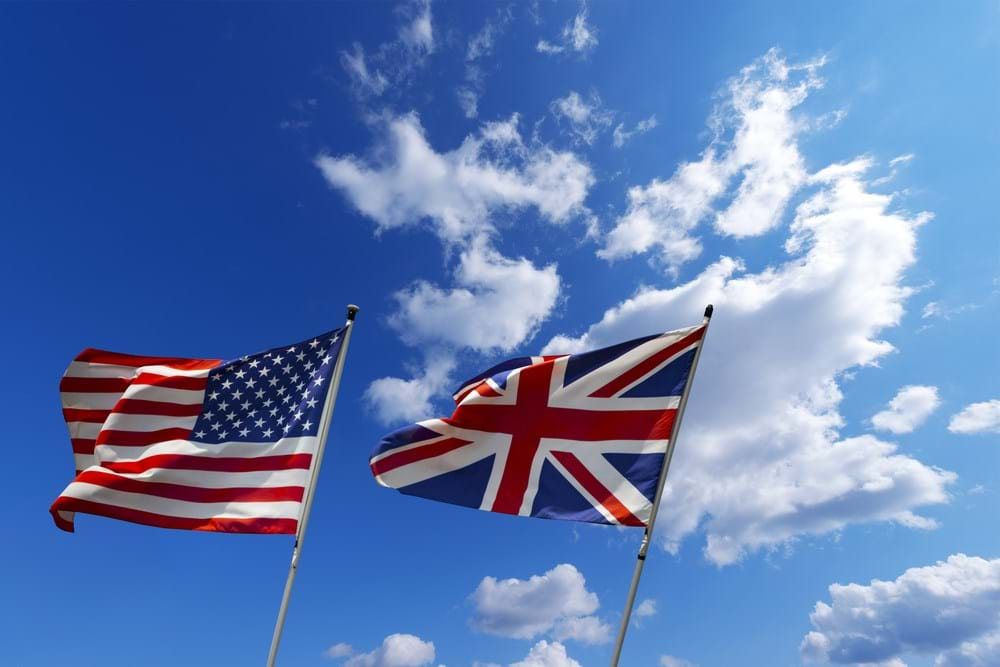UK and US leaders announce new energy partnership

THE UK Government has announced that the US will increase gas exports to the UK as part of a new partnership aimed at cutting bills for British consumers, and to help end dependence on Russian energy.
Dubbed the “UK-US Energy Security and Affordability Partnership”, the agreement follows talks held by UK Prime Minister Rishi Sunak and US President Joe Biden at the recent G20 Summit in Indonesia.
During the meeting, the pair agreed to take forward work to address the UK’s short-term energy needs and to accelerate the country’s push to net zero.
Steering the initiative is a new UK-US Joint Action Group, led by senior officials from the UK Government and the White House. It will build on the work of the UK-US Strategic Energy Dialogue, a new Atlantic Charter set up in June 2021 by the then Prime Minister Boris Johnson, to deepen collaboration with the US in similar areas to the new partnership.
As part of the deal to help combat the spike in energy prices, the US said it will aim to export at least 9–10bn m3 of liquefied natural gas (LNG) over the next year via UK terminals. This will be more than double the level exported in 2021.
Currently, one of the factors keeping gas prices high in the UK is the country’s lack of gas storage facilities. Despite the reopening this year of Centrica’s Rough facility off the north coast of England, the UK still has some of the lowest levels of gas storage in Europe, with just 10 TWh of gas – a paltry figure when compared to Italy’s 166 TWh and Germany’s 216 TWh.
In addition, although the UK’s reliance on Russian gas is minimal – imports from Russia make up around 4% of gas used – other European countries import significantly more. Last year for example, gas from Russia accounted for 55% of Germany’s gas imports, a figure which has since halved. But when supply is low and demand stays the same, prices rise.
The problem for consumers is further exacerbated as the UK does not have a publicly-owned energy company to help control price increases, so flows are primarily driven by market forces. Sweden, for example, owns 100% of Vattenfall, one of Europe’s largest producers of electricity, and France has started the process to fully nationalise EDF as it seeks to secure greater control of its energy supply.
Like the UK, the US also doesn’t have a state-backed energy company and more than 80% of its energy infrastructure is owned by the private sector. The country does however have lots of oil, and is one of the world’s top producers of natural gas, along with Russia, Iran and China.
Although the main focus of the partnership was on gas supplies, the two countries reiterated their commitment to collaborate on offshore wind and carbon capture technologies as well as nuclear, and hydrogen projects, as Johnson’s previous partnership did with the US. Innovative energy solutions, such as the decarbonisation of the aerospace industry and the development of sustainable aviation fuel technologies, and boosting the electric vehicle market will also be pursued, said the Government.
“Together the UK and US will ensure the global price of energy and the security of our national supply can never again be manipulated by the whims of a failing regime,” said Sunak.
“We have the natural resources, industry and innovative thinking we need to create a better, freer system and accelerate the clean energy transition. This partnership will bring down prices for British consumers and help end Europe’s dependence on Russian energy once and for all.”
Recent Editions
Catch up on the latest news, views and jobs from The Chemical Engineer. Below are the four latest issues. View a wider selection of the archive from within the Magazine section of this site.




